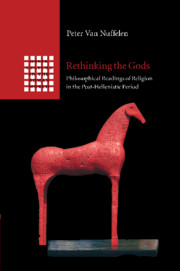Book contents
- Frontmatter
- Contents
- Acknowledgements
- Abbreviations
- Introduction
- Part I Ancient wisdom
- Chapter 1 Tracing the origins
- Chapter 2 Plutarch of Chaeronea
- Chapter 3 Numenius
- Chapter 4 Dio Chrysostom, Apuleius and the rhetoric of ancient wisdom
- Part II Cosmic hierarchy
- Part III Polemic and prejudice: challenging the discourse
- Bibliography
- Index
- References
Chapter 4 - Dio Chrysostom, Apuleius and the rhetoric of ancient wisdom
from Part I - Ancient wisdom
Published online by Cambridge University Press: 05 December 2011
- Frontmatter
- Contents
- Acknowledgements
- Abbreviations
- Introduction
- Part I Ancient wisdom
- Chapter 1 Tracing the origins
- Chapter 2 Plutarch of Chaeronea
- Chapter 3 Numenius
- Chapter 4 Dio Chrysostom, Apuleius and the rhetoric of ancient wisdom
- Part II Cosmic hierarchy
- Part III Polemic and prejudice: challenging the discourse
- Bibliography
- Index
- References
Summary
The preceding chapters have explored how the discourse of ancient wisdom underpinned a hermeneutics of religion in the Late Republican and Early Imperial periods. Authors as diverse and chronologically distant as Varro, Plutarch and Numenius exploit its potential to provide another source of authority for their philosophy. The notion possibly being of Stoic origin, most of our earliest sources (Posidonius, Chaeremon and Cornutus) for it are indeed Stoic, with the notable exception of Varro. By the end of the first century and definitely in the second, however, the balance has shifted and almost exclusively Platonists seem to draw on the concept, with Plutarch, Numenius and, as we shall see in Chapter 11, Celsus as best examples. Ancient wisdom appears in ever-changing guises, although certain characteristics return, such as the wilful creation of religion by ‘ancients’ and the consequent ambivalent nature of religion as an image of truth, the role of wise lawgivers in adjusting it in line with truth, and the focus on secrecy and mystery cults.
This chapter argues that the discourse exerted an attraction beyond the sphere of school philosophy. To a certain extent, this is already clear from some of the authors discussed. For example, in contrast to his technical treatises, Plutarch's religious works aimed at a wider audience than specialised philosophers. The idea is also regularly drawn upon by the late second-century ‘popular’ philosopher Maximus of Tyre, in his orations probably addressed to the educated youth of Rome. Traces of the discourse on ancient wisdom can be detected in other texts as well, but the present chapter limits itself to two outstanding examples of the literary production of the Second Sophistic: the Borystheniticus by Dio Chrysostom and Apuleius’ Metamorphoses. It will show that we acquire new insights into the arguments and themes of these works when reading them as engaging with the discourse of ancient wisdom. Both authors have a philosophical background, with Dio leaning towards Stoicism and Apuleius favouring Plato, and they illustrate well how thin and permeable the divide between sophists and philosophers was in this period. Yet their treatment of ancient wisdom is literary and ironical rather than philosophical: Dio uses it to shed doubts on the superiority of Greek culture, whereas the Metamorphoses can be read as exploring the dark recesses of superstition. As such, both works reveal the attraction of the discourse on ancient wisdom in the Post-Hellenistic period, as well as its rhetorical potential.
- Type
- Chapter
- Information
- Rethinking the GodsPhilosophical Readings of Religion in the Post-Hellenistic Period, pp. 84 - 98Publisher: Cambridge University PressPrint publication year: 2011

